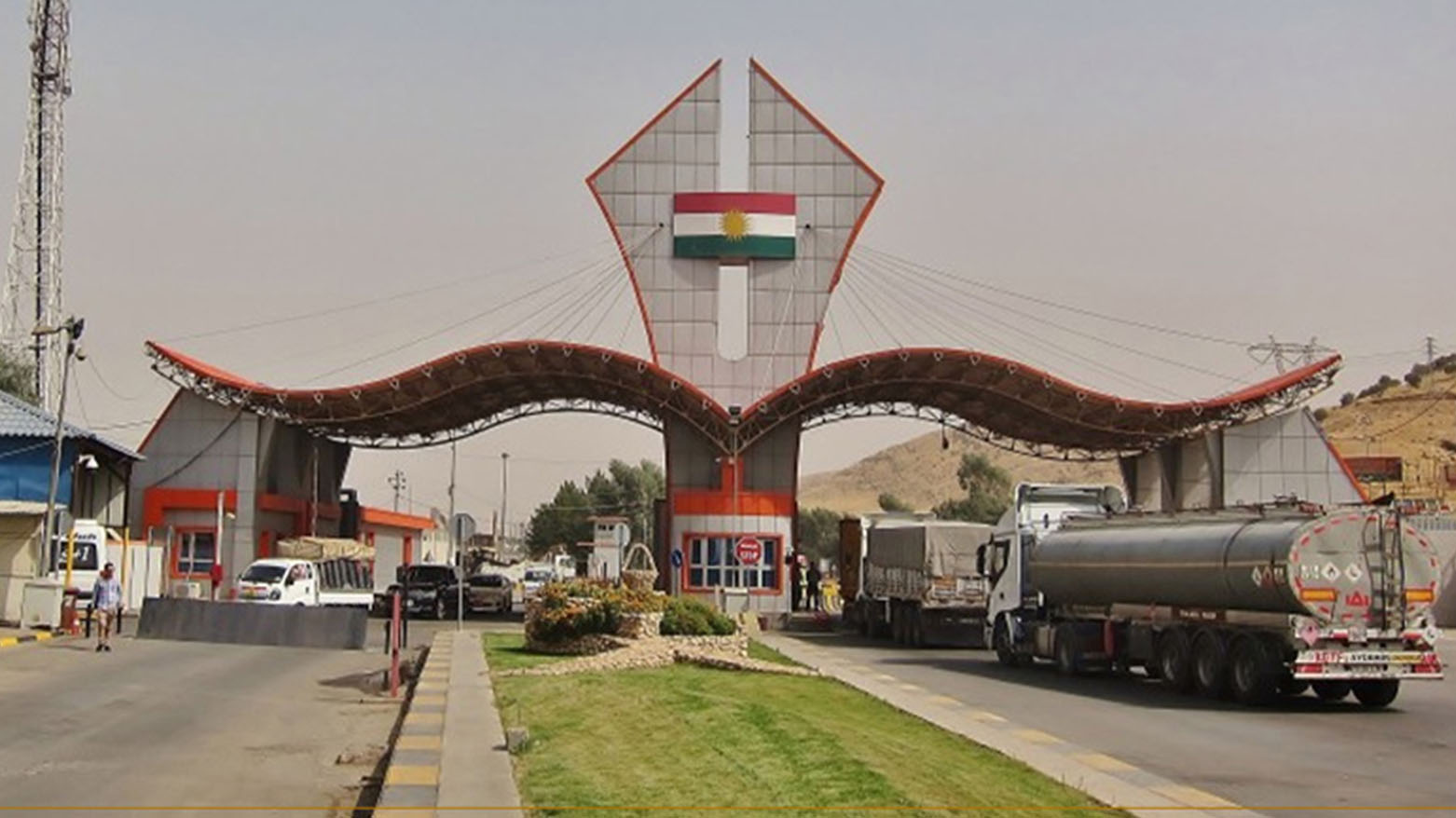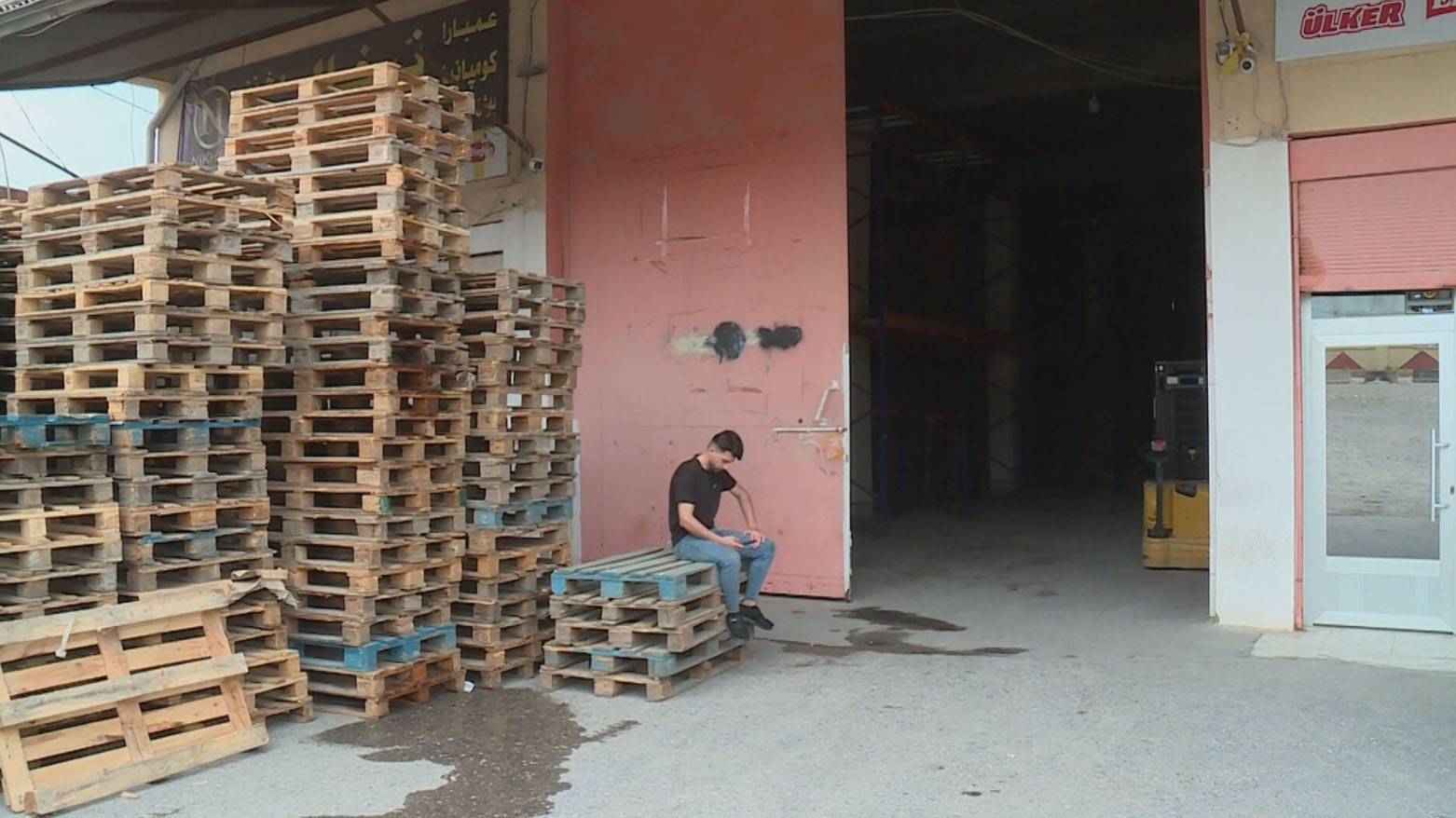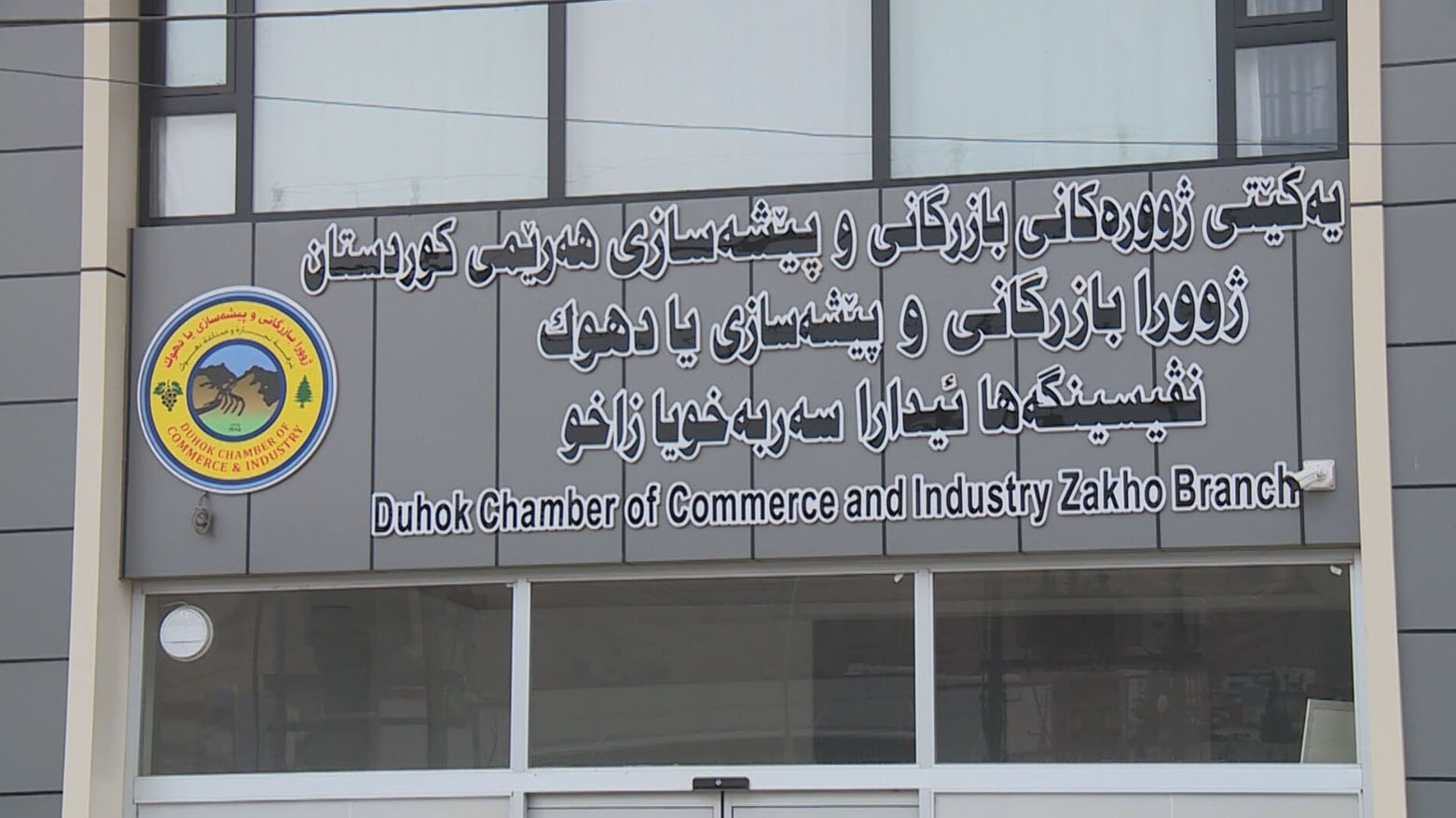Baghdad’s Customs Policy Leaves Thousands of Kurdistan Workers Jobless
Local data suggests that over 10,000 workers were employed in the logistics sector across Zakho and Duhok before the customs decision. The majority are low-income laborers living in rental housing.

By Ahora Qadi
ERBIL (Kurdistan24) – A sweeping customs regulation issued by Iraq’s federal government has brought commercial activity in Zakho and Duhok to a virtual standstill, depriving thousands of workers in the Kurdistan Region of their only source of income.
For Hakar Mohammed, a warehouse laborer in Zakho, the last month has meant nothing but waiting. Sitting idle on a curb near one of the city’s shuttered warehouses, his eyes fixated on a silent mobile screen, he embodies the daily despair of hundreds now left without work.
“We used to unload three to four trucks a day,” he told Kurdistan 24. “But since more than a month ago, everything stopped. Now we just wait here. I can’t even afford my rent.”
Federal Decision Disrupts Cross-Border Trade
The crisis began after Baghdad implemented new customs requirements in October 2024, mandating specific federal clearance codes for all goods passing through Kurdistan’s border crossings. The result has been immediate: hundreds of trucks have ceased to pass through the Ibrahim Khalil crossing, paralyzing trade and cutting off livelihoods.
Day laborers, who form the backbone of warehouse operations in Zakho and Duhok, are now left without any form of income or social protection. Without trucks, there is no work. Without work, there is no bread.
Abdullah Ibrahim, another affected worker, described the dire reality:
“Some days, we make no more than 10,000 Iraqi dinars (7.5$). Some people have already stopped coming to work altogether.”
Mohammed Khalil, a father of three, highlighted the sudden collapse of his household income:
“We used to make between 50,000 to 100,000 dinars (38$ to 76$) a day. Now, on some days, we can’t even afford a taxi fare to the warehouse.”
Business Impact Spreads Beyond Zakho
The economic fallout isn’t limited to laborers. According to Latif Othman, head of the Zakho Chamber of Commerce, more than 1,000 companies registered in the Zakho independent Administration have been impacted. Around 500 of these are active members of the local chamber, many of which have either suspended operations or shut down entirely.
“This decision has hit every company in Duhok and across the Kurdistan Region,” said Othman. “Especially those dependent on imports through the Ibrahim Khalil crossing.”
Local data suggests that over 10,000 workers were employed in the logistics sector across Zakho and Duhok before the customs decision. The majority are low-income laborers living in rental housing, now pushed to the brink by the sudden halt in trade.
A Plea for Reconsideration
With no alternative employment in sight, affected workers and business owners are urging the federal government to reconsider its policy. Many are calling for a compromise that safeguards both national economic policy and the livelihoods of vulnerable citizens in Kurdistan.
As the economic pressure intensifies and daily life grinds to a halt for tens of thousands of families, one message echoes from the warehouses of Zakho: revise the decision before despair turns to collapse.
Mivan Makjid, Kurdista24 corresponded contributed to this report

